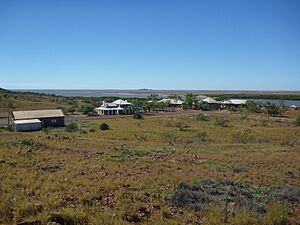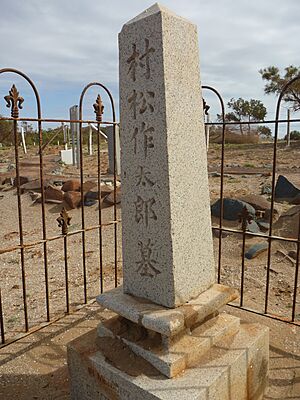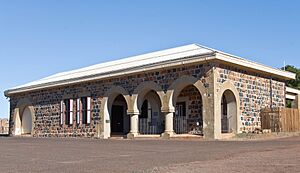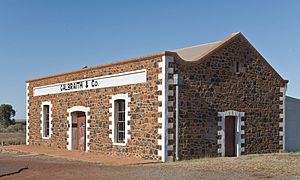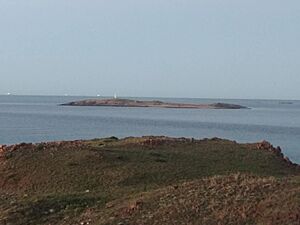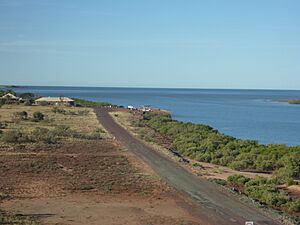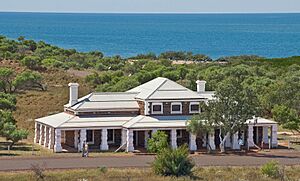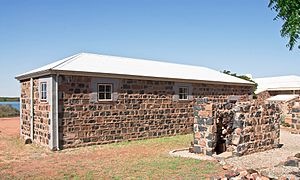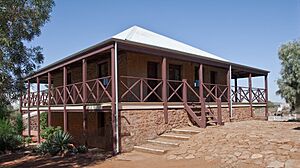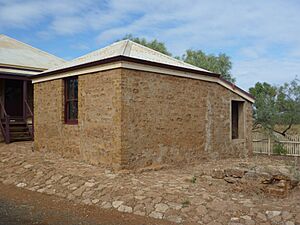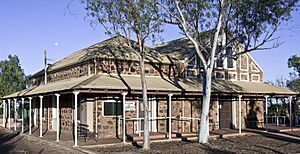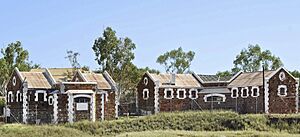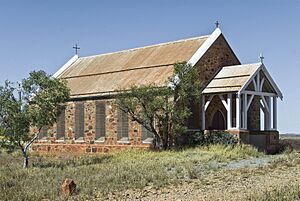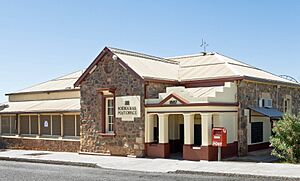List of State Register of Heritage Places in the City of Karratha facts for kids
The State Register of Heritage Places is like a special list of important historical spots in Western Australia. It's looked after by the Heritage Council of Western Australia. As of 2023, the City of Karratha has 122 places on its local heritage list, and 30 of these are so important that they are also on the State Register. This means they are officially recognized and protected because of their history and special value.
Contents
Exploring Karratha's Heritage Gems
The City of Karratha is home to many fascinating historical places. These sites tell us stories about the past, from early settlements and pearling ports to important government buildings and homes. Let's explore some of these amazing heritage spots!
Historic Cossack
Cossack is a town with a rich history, once a busy pearling port and a stop for gold miners. Many of its old buildings are now protected heritage sites.
Cossack Town Site Precinct
This whole area is important! Cossack was Western Australia's first pearling port, starting in 1863. It was also a key stop during the gold rushes of the 1880s. It was once known by other names like Tien Tsin and Port Walcott.
Cossack School (Ruins)
The ruins of the old Cossack School, built in 1896, show us what typical government buildings looked like in the late 1800s.
Cossack Cemetery
This historic cemetery includes a special section for Japanese people. It tells a lot about the diverse community that lived and worked in Cossack.
Customs House & Bond Store
Built in 1895, this building was designed by George Temple-Poole using local stone. It was originally a place where goods coming into the port were checked and stored. Later, it became a cafe, a place to store weapons, and even a holiday home!
Galbraith's Store
This large stone warehouse, built around 1890, was an important store in Cossack. Its roof was later replaced with corrugated metal.
Jarman Island Lighthouse & Quarters
Out on Jarman Island, you'll find an old lighthouse and the ruins of the keepers' living quarters, built in 1888. The lighthouse is a classic example of cast iron towers from the late 1800s. The quarters, also designed by George Temple-Poole, are now ruins.
Land Backed Wharf
This stone wharf, built in 1894, was crucial for loading and unloading ships in Cossack.
The Old Court House
Built in 1885, this stone building has a metal roof and large stone pillars supporting a verandah (a covered porch) on all four sides. It was where legal cases were heard.
Police Quarters, Lockup & Service Buildings
This complex, built around 1890, includes a stone police station, a lockup (jail), a cookhouse, and toilets. It shows how police services were set up in the past.
Post and Telegraph Office
This two-storey building, constructed in 1884 from local shell limestone, is the oldest building in Cossack. It was once the hub for sending mail and telegrams. It also included a kitchen and a service building.
Registrar's Office and Residence
Built in 1895, this building also served as the North-West Mercantile Store and Office. The ruins of the mercantile store are still there.
Cooya Pooya Station
Cooya Pooya Homestead
Located about 35 km south of Roebourne, this homestead was built in 1882. It's a great example of the unique architecture of the North-West, with stone walls and verandahs all around. The shearers' kitchen, made of freestone, is especially well-built.
Roebourne's Old Buildings
Roebourne has several important heritage sites, many designed by the famous architect George Temple-Poole.
Roebourne Police Station, Gaol & Court House Precinct
This unique complex, built from 1886 onwards, is special because it has a police station, a court house, and a gaol (jail) all on one site.
Roebourne Courthouse
Built in 1886, this is the oldest functioning court house in Western Australia! It's still used today.
Roebourne Gaol
The Roebourne Gaol, built in 1896, was also part of this important complex.
Roebourne Police Station
The police station, built in 1896, completed this important group of buildings.
Dalgety House
This single-storey house, built in 1892, is made of timber and corrugated iron. It's a good example of the North-West style of homes and was connected to the large agricultural company, Dalgety & Co..
Holy Trinity Anglican Church
Built in 1895, this church is the oldest church in the Pilbara region and the only stone church there. It has a unique local style with some Victorian Romanesque features.
Roebourne Hospital Group
This hospital group, built in 1887, was the second public hospital built in Western Australia and one of the first "Bungalow Hospitals" to survive. It was one of George Temple-Poole's early designs.
Mount Welcome House
Built in 1864, Mount Welcome House is another great example of the North-West's unique architectural style.
Roebourne Primary School & Quarters (former)
This building, constructed in 1891, was the first school to open in northern Western Australia and is the oldest school building still standing in the region. It's also known as the Yaadina Babies and Children's Centre.
Roebourne Post Office
Built in 1887, this post office was an early work of the famous architect George Temple-Poole.
De Grey - Mullewa Stock Route No. 9701
Historic Stock Route
This isn't a building, but a very long historical path! The De Grey - Mullewa Stock Route, established in the 1870s, is a massive 1,500-kilometer route. It stretches from Mullewa all the way to just east of the De Grey River, near Port Hedland. It was used to move livestock across the vast landscape.
Images for kids
-
Cossack School (Ruins).jpg
Cossack School (Ruins)
-
Registrar's Office and Residence.jpg
Registrar's Office and Residence


